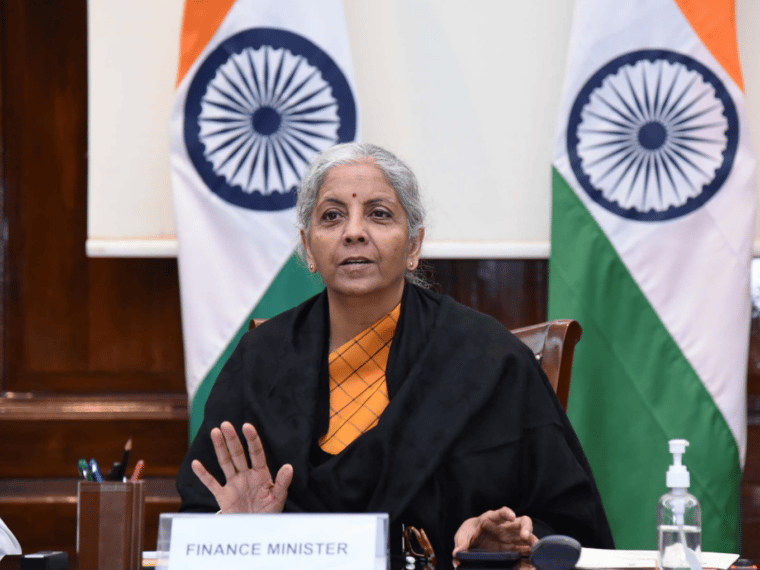
Finance Minister Nirmala Sitharaman said that self-sufficiency to be able to transition to a better climate is a major aspect of ‘Atmanirbhar Bharat’
She urged startups and investors to look beyond the fintech and enterprisetech sectors and give importance to areas such as climate change solutions
As per a report, acting on climate change in India could be a $11 Tn addressable market opportunity by 2071
Finance Minister Nirmala Sitharaman has urged homegrown startups and entrepreneurs to also focus on developing climate change and farming solutions.
“More and more innovations for dealing with climate and climate change are going to be absolutely precious. Climate issues have a direct bearing on farming as well as on the supply chain in the country,” Sitharaman said while addressing the ‘Vananam Startup Inclusion Summit’ in Bengaluru on November 26.
Sitharaman said that defence, food security and manufacturing are not the only bedrock of ‘Atmanirbhar Bharat’, and added that self-sufficiency to be able to transition to a better climate in the country is also a major aspect of the initiative.
Urging startups and investors to look beyond the fintech and enterprisetech sectors, the finance minister called for giving due importance to areas such as climate change solutions and improving the lives of farmers.
She also noted that unpredictable weather conditions have brought forth a myriad set of challenges in areas such as agriculture, urban living, water management, disaster management, construction of houses, industries, and even national security.
Sitharaman also said that such issues can take a big toll on the country’s economy.
“Karnataka is one of the biggest producers of diverse varieties of millets… There are plenty of opportunities for startups, including helping farmers realise better prices for their millet produce through value addition,” the finance minister said.
She also informed the gathering that Bengaluru is slated to host the G20 Finance Ministers and Central Bank Governors’ meeting in February next year, and asked the local startups to make the most out of it.
India’s Climate Change Peril
Home to nearly 20% of the world’s population, India is among the countries most vulnerable to climate change. As per a 2020 report, the country’s average temperature is expected to rise by 4.4 degree Celsius by the end of 2100.
A World Bank report estimates that climate change could impact 2.8% of India’s GDP and depress the living standards of nearly half the country’s population by 2050.
With floods and droughts still the norm in many parts of the country, India continues to stand at the edge of a crisis in the making. However, this has also led to new platforms and startups spawning in the country to transform the fast-growing infrastructure and energy systems to reduce heat trapping emissions.
While Bengaluru-based Graviky Labs captures carbon dioxide from the atmosphere and turns it into useful materials, startups such as Smart Joules help companies decarbonise their existing businesses through implementation of comprehensive energy efficiency retrofits.
Others such as Carbonlites convert waste into natural gas and then store it in cylinders and sell them to restaurants for use.
The space is still scaling up and is in its nascent stage. Climatetech startups account for less than 2% of venture funding in the country. Such startups raised a little over $1 Bn between 2016 and 2021, well below the global numbers.
However, the situation is fast changing. With climate change emerging as a menace, new and innovative products are hitting the shelves everyday. The investors are also showing a renewed interest in the field.
Days ago, Bengaluru-based venture capital (VC) firm Transition VC launched its maiden fund worth INR 400 Cr to back cleantech and climatetech startups. VC firm Merak Ventures and accelerator-led fund Huddle also announced a climatetech-focused accelerator programme earlier this month.
In August, VC fund Climate Angels also launched a syndicate fund to help investors invest in climatetech startups easily. In March, the Gujarat government set up an INR 500 Cr fund for climatetech startups.
As per a report by Deloitte Economics Institute, acting on climate change in India could be a $11 Tn addressable market opportunity by 2071.































 Ad-lite browsing experience
Ad-lite browsing experience